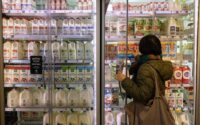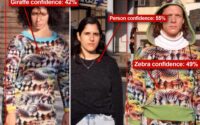Economists see 70% chance of US recession in 2023: survey
The likelihood of a US recession in 2023 jumped to 70% as a series of Federal Reserve interest rate hikes drives fears of a stagnating economy, according to economists polled in a monthly survey conducted by Bloomberg.
The recession probability was up from 65% in November and has more than doubled over the last six months, the survey showed. The same survey placed the likelihood of a recession at just 30% last June.
Collectively, the economists gave a median estimate for US gross domestic product of just 0.3% in the coming year — including a projected 0.7% in the second quarter. Bloomberg said the economists expect consumer spending, a key GDP driver, to “barely grow in the middle half of the year.”
“The US economy is facing big headwinds from surging interest rates, high inflation, the end of fiscal stimulus, and weak export markets abroad,” Comerica Bank chief economist Bill Adams told Bloomberg.

“Businesses have turned cautious about adding to inventories and hiring, and will likely delay construction and other capex plans with credit more expensive and order books shrinking,” Adams added.
The gloomy forecast from leading economists came just days after the Fed implemented a seventh consecutive interest rate hike in an ongoing effort to tame inflation. Fed officials signaled they will hike rates more than they initially expected over time — fueling concerns among investors that the central bank will “oversteer” and cause a recession.
Economists did predict the Fed will make significant progress in its fight against inflation next year. Bloomberg polled 38 economists about their views in a survey conducted from Dec. 12 through Dec. 16.

Forecasts suggest the personal consumption expenditure price index — the Fed’s preferred gauge of inflation — will decline to 2.8% by the fourth quarter of 2023. It is currently at 5%. The core PCE index, which excludes volatile food and energy prices, is projected to sink to 3%.
Still, both numbers are expected to run above the Fed’s 2% target for inflation.
Economists also predicted the US unemployment will rise throughout the year as Fed rate hikes cause more pain in the labor market, with the rate peaking at 4.9% in early 2024.

Fed Chair Jerome Powell said a “soft landing” for the US economy is still possible, even with more rate hikes expected.
“To the extent we need to keep rates higher and keep them there for longer and inflation moves up higher and higher, that narrows the runway,” Powell said. “But lower inflation ratings, if they persist, in time could make it more possible.”


